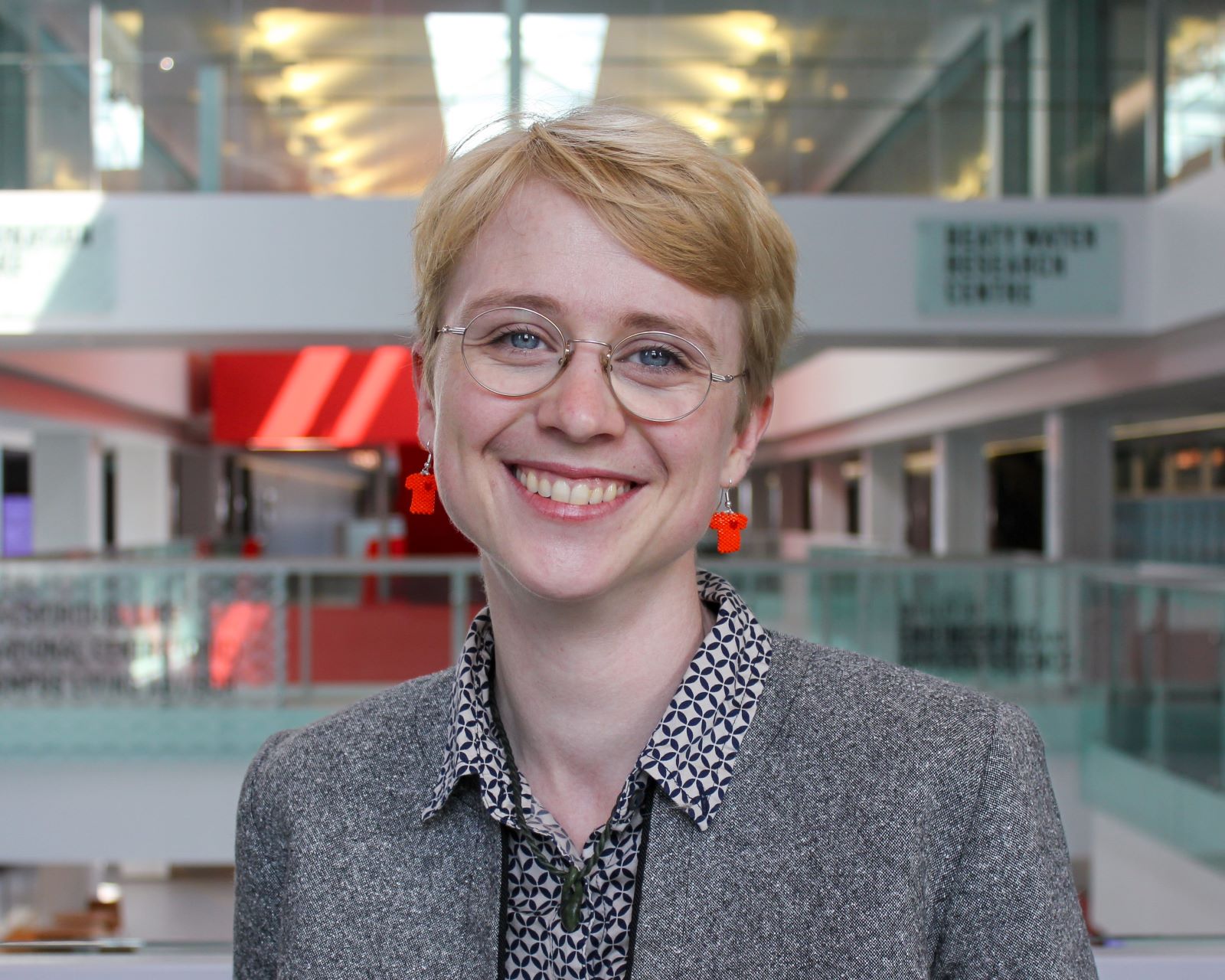
Élise Devoie has been named one of 12 finalists of the NATO Women and Girls in Science 2024 challenge. She will present her research proposal at NATO headquarters in Brussels on May 30.
Launched in February, the challenge invites female students and researchers under 35 to submit research ideas for NATO to realise over the next five years. Each proposal must address one of the military alliance’s four science and technology focus areas: energy security, climate change, human security, and societal resilience.
Devoie’s pitch touches on all four areas and many of the United Nation’s 17 Sustainable Development Goals. Her idea is to start a collaborative research taskforce that would use supercomputing to combine interdisciplinary expertise creating a computer model of planet earth – not just the physical systems but including human politics, decision making, and policy as well. This model would be used to predict the outcomes of our current climate policy actions, and enable us to make better decisions for the sustainable future of the Earth.
An Assistant Professor of Civil Engineering who joined Smith Engineering last year, Devoie says she is “excited,” “honoured,” and “pretty terrified” at the chance to make her 10-minute presentation to NATO staff. A panel of experts will select three overall winners to visit the NATO lab at the Centre for Maritime Research and Experimentation in La Spezia, Italy this summer.
“At this stage in my career, I would never have dreamed to make it this far,” says Devoie, who studies climate change impacts on permafrost and hydrology in the North. “My career aspiration has always been to move the needle a tiny little bit on the sustainability problem, and now I get to do this. It’s incredible.”
At the heart of Devoie’s proposal is exascale computing, a new type of supercomputing which features approximately one thousand times more speed and power than previous supercomputers. In recent years, the technology has been used for everything from forecasting the weather to creating digital twins of the planet.
Devoie’s idea is to extend the digital twin concept using ExaScale computing to develop highly sophisticated models of the world. They would link earth systems data with information related to fields as diverse as economics, geopolitics, and population dynamics. The models would also integrate human decision-making strategies so that predictions could be made about a range of policy choices, future climate-related scenarios and how best to implement the SDGs.
The idea grew out of Devoie’s conversations with her fellow CIFAR Azriel Global Scholars and others studying the changing planet. They all helped her see the staggering complexity of trying to solve the climate crisis, she says. “There are so many elements involved, and right now there is no way of combining all of them. So I think it’s really important to generate a tool that will help folks in decision-making roles understand the consequences of their decisions so that they can do the right thing.”
Devoie says she is keeping her hopes in check about the competition, however. Winning the challenge wouldn’t necessarily mean that NATO funds her proposal or that she would be involved in making it become reality. Still, she says, just providing a “tiny political push” like this can help make real change happen on the climate front.
She also believes that real change can come through including the diversity of viewpoints that a challenge like this encourages. “Yes, having young women brings fresh perspectives, but our gender identity isn’t what I’m most interested in,” she says. “The idea that we’re folks who are highly invested and aren’t the usual people that these groups interact with is what I think is very powerful.”
Devoie says she can’t wait to meet her fellow challengers. “The whole idea behind my proposal is that we work together. So this isn’t really a competition for me. It’s an opportunity to push things in what I hope is the right direction and an opportunity to meet folks who probably have better ideas than my own so that together we can achieve something meaningful.”
The Women and Girls in Science 2024 challenge finale will take place in Brussels on Thursday, May 30th from 7 am to 12 pm ET. Register here to watch virtually.